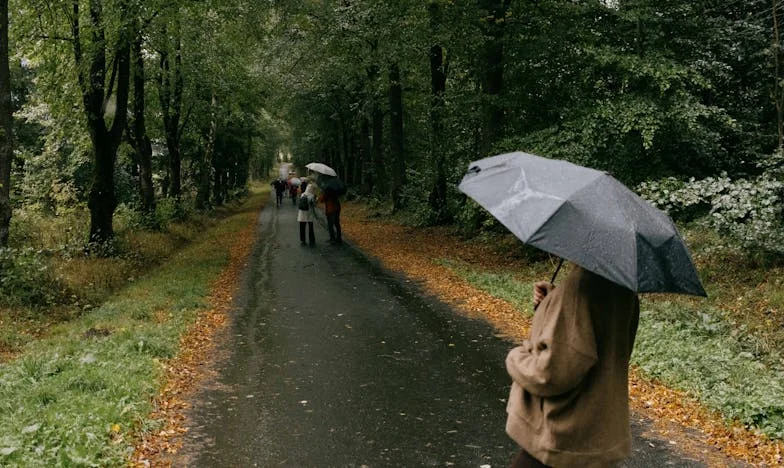How Could You Sign That, Emily?
“How could you sign that, Emily?!” I screamed, my hands trembling as I waved the crumpled deed in the air between us. The kitchen was awash in late afternoon light, but there was nothing warm about its glow. My sister just stood there, back straight, eyes cool as steel, as if this was some tedious business meeting and not the collapse of everything we’d built together since Mom and Dad died.
She took a slow sip from her chipped mug—the one with the faded Red Sox logo Dad had loved—and set it down with a clink. “I signed it. So what? The house isn’t doing us any good, Sarah. It’s time to move on.”
Move on? Move on from the only place that ever felt like home? From Sunday dinners and backyard barbecues, from the porch swings where we’d whispered secrets as kids? My voice caught in my throat. “You had no right to do this without me. We agreed—no big decisions unless we both signed. That was the deal, Emily.”
She wouldn’t meet my eyes. “It’s just paperwork. The realtor said it’d be easier if only one of us signed. Besides, you’re never even here. You’re in Denver half the year. I’m the one stuck mowing the lawn and fixing the roof.”
I didn’t realize I was crying until a salty tear slid across my lips. “That’s not fair. I send money every month. I flew home when Dad got sick. I—”
She cut me off with a sharp laugh. “You flew home. Then you flew away again. Some of us don’t have that luxury.”
There it was—the real issue. Not the house. Not the paperwork. It was about who carried the weight of family, who got to run and who had to stay.
I’d always thought Emily was the strong one. The responsible one. But staring at her now, I saw the exhaustion etched into her face, the bitterness lurking behind her words. I wanted to reach across the counter and shake her. Or hug her. Maybe both.
“Em, why couldn’t you just wait for me? Why didn’t you call?” I whispered, my anger draining away, replaced by something colder and more fragile.
She shrugged, her jaw tight. “Because I was tired of waiting. I needed this chapter to end, Sarah. I want a life that isn’t just caretaking and remembering.”
The silence stretched between us, filled with everything we’d never said. The ticking clock, the hum of the fridge, the ghosts of our parents lingering in every shadow.
“So what now?” I asked, barely recognizing my own voice.
She looked at me then, really looked at me. Her eyes were red-rimmed, her lips trembling. “I don’t know. I just know I can’t keep living in this house, stuck in the past.”
I sank onto the nearest chair, my legs suddenly weak. Images flashed through my mind: Dad grilling burgers, Mom humming as she folded laundry, Emily and I chasing fireflies at dusk. Could I let all that go? Could I forgive her for making this choice alone?
For days, we circled each other like wary animals, barely speaking. The realtor came by, all business and forced smiles, and I signed the final papers with a hand that shook so badly I could barely hold the pen. When the new owners moved in—a young couple with a baby and a golden retriever—I watched from my car as they laughed in the driveway, and it felt like a knife twisting in my gut.
Emily moved into a tiny apartment downtown, and I flew back to Denver, but nothing felt right. I kept replaying that last fight in my head, wondering what I could have said or done to change things. I missed her. I missed us. But every text I sent went unanswered, every call went straight to voicemail.
Thanksgiving came and went. I spent it alone, microwaving a turkey dinner, wishing for the hundredth time that I could turn back time. Finally, in December, I got a card in the mail. No return address, just my name in Emily’s neat handwriting. Inside, a photo of us as kids, grinning in front of the old house, arms slung around each other’s shoulders. And a note: “I’m sorry. I hope you can forgive me someday.”
I sat on my bed for a long time, staring at that picture. I realized then that the house was never really the thing that mattered. It was us. Our memories, our bond. Maybe Emily had been right. Maybe letting go was the only way we could finally move forward.
I called her that night. This time, she picked up. We talked—really talked—for the first time in months. There were tears and apologies, confessions and laughter. It wasn’t perfect. The hurt was still there, raw and aching. But it was a start.
Now, months later, I still wonder if I made the right choice. If selling the house was the end or just a new beginning. But one thing I know for sure: family is messy and complicated, but it’s worth fighting for.
Do you think forgiveness can heal a wound this deep? Or are some betrayals too much to overcome?
